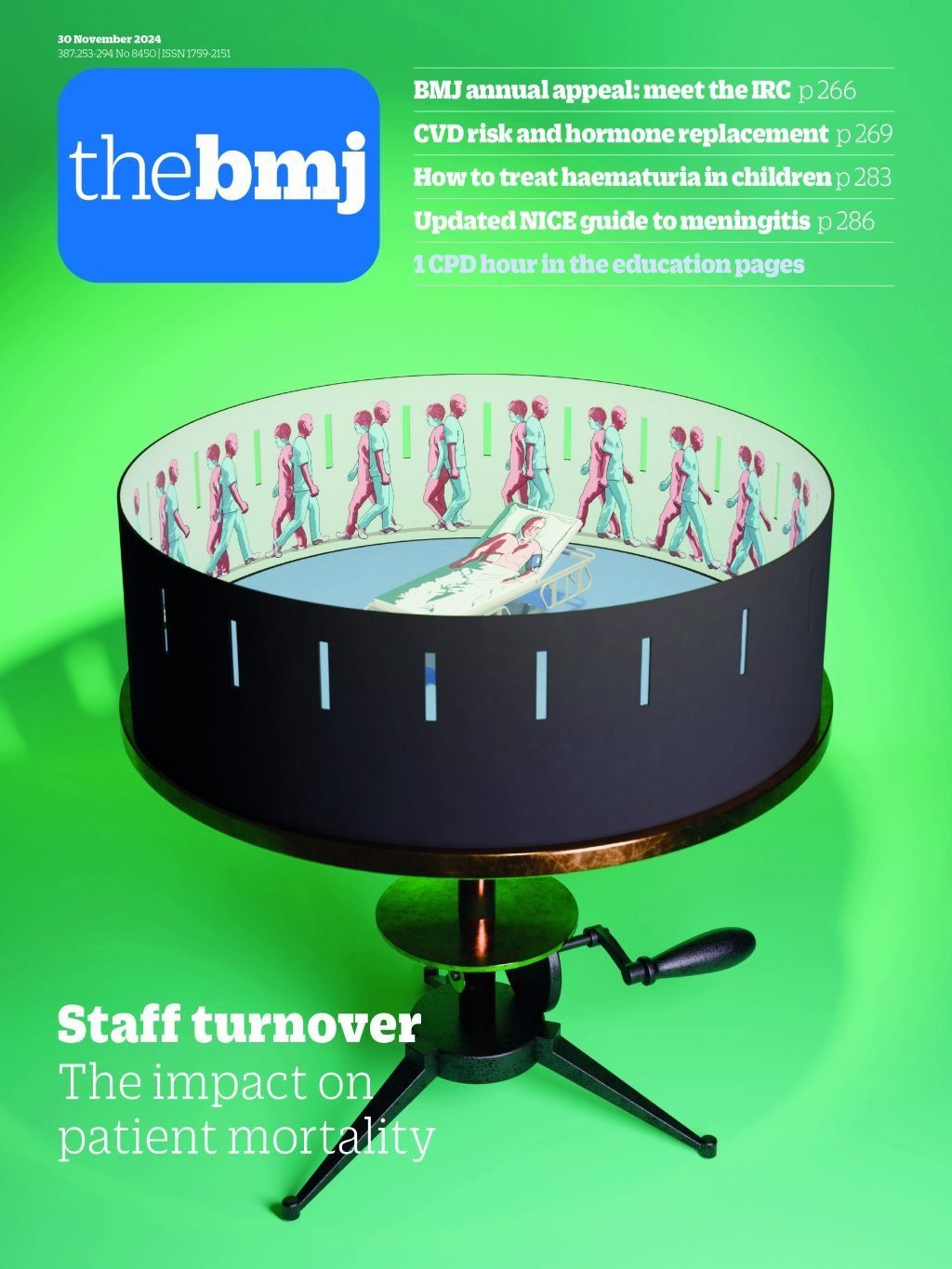
- Vicky Sibson, director1
A new investigation in The BMJ shines a spotlight on the stealth marketing of big food brands in schools and nurseries.1 The conflict of interest at play when commercial food companies sponsor or organise children’s breakfast clubs, activities, and educational material is obvious when their primary duty is to their shareholders. It gives these companies another opportunity to get their logos and distinctive branding in front of young so-called consumers and their carers, all while dressing the initiative up as purely educational and legitimising their brand.
Even before a child has learnt how to read, they can readily recognise brands,2 and a child’s knowledge of food brands can be a significant predictor of adiposity.3 We should not underestimate the power of marketing in fuelling childhood obesity, and should see the presence of food brands in nurseries and schools in the context of their wider tactics to promote their products.
The early years—from preconception to the age of 5 years—present an important window of opportunity to shape lifetime health. Growth trajectories are set in the first years of a child’s life: if a baby or toddler gains excess weight, they are likely to arrive in reception with an unhealthy weight, start secondary school still overweight, and grow to become an adolescent and adult with a body mass index classified as overweight or obese.456 It is deeply worrying, therefore, that the latest data from the National Child Measurement Programme show that 22% of 4-5 year olds living in England are overweight or obese (with this single statistic masking considerable inequalities between children in the most and least deprived areas).7
As well as influencing growth, diets in infancy and early childhood shape enduring food preferences and dietary habits, for better or worse.89 This window of opportunity means that what and how babies and toddlers are fed really matters in the short and long term.
Wilkinson’s investigation focuses on the food industry’s infiltration of nurseries and schools, but the pervasive, under-regulated marketing of under-regulated commercial baby foods and drinks has normalised their consumption in infancy and early childhood. Families in all socioeconomic groups routinely feed them to their babies and toddlers. One recent survey reported that only 14% of UK parents whose youngest child was under 6 months of age did not buy any commercial baby foods or drinks.10 Data from Scotland indicate that in 2017, 87% of mothers of babies aged 8-12 months reported feeding them commercial baby foods, 41% at least five days a week.11 This proportion is despite the Scientific Advisory Committee on Nutrition (SACN) stating that “home-prepared foods are generally recommended to help introduce infants and young children to a range of appropriate flavours and textures,” and further clarifying that “Commercially manufactured foods and drinks marketed specifically for infants and young children are not needed to meet nutritional requirements.”12
The baby food industry market their products as healthy and appropriate choices, when it has been shown repeatedly that, typically, they are not.13141516 These products are often labelled with misleading names that do not align with principal ingredients, inappropriate ages, deceptive statements about sugar content, and unregulated claims and health halo statements.13 Many products are also ultra-processed.17 Commercial baby foods also displace real minimally and unprocessed foods needed for optimal growth, health, and development.17 Lastly, the commonplace use of so-called finger foods (ie, commercial baby snacks) normalises and establishes unnecessary and unhealthy snacking from an early age.17 Parents want to make good choices for their babies and they trust these companies, but this trust is misplaced.1819
Public Health England’s evidence review exposing the key problems with the commercial baby food offer was published in 2019.13 Yet five years on, with mounting evidence and high rates of childhood obesity and dental caries,2021 our new government has yet to take action to tackle product composition or marketing—which is puzzling in the face of their commitment to “creating the healthiest generation of children in our history.”22
This government should follow through on its plans to publish voluntary baby food guidelines and assess industry adherence. If insignificant progress is made in the short term, the government needs to make a clear plan to mandate standards instead, ensuring complete alignment with guidance from the World Health Organization and UK public health recommendations. Compliance with regulations needs independent and robust enforcement.
Parents also need better support to feed their children diets based on foods that are home prepared, nutrient dense, and less processed. This guidance requires restoring the public health grant so that the health visiting service is properly funded, and improving the national nutrition safety net—the Healthy Start scheme—by increasing the monetary allowance given to beneficiaries in line with food inflation and widening the eligibility criteria to benefit more families in need. Part of this support should also involve improving the dietary information parents receive and removing any confusion or ambiguities. The NHS and Better Health Start for Life websites should echo the advice of SACN: that home prepared foods are generally preferred over commercial baby foods, which are not needed, as well as cautioning on their appropriateness.
Wilkinson’s investigation reveals the subtle tactics that the food industry uses to influence what children eat from early on in their lives, and reminds us of the government’s ongoing failure to tackle childhood obesity. The supermarket baby food aisle seems to be a particular blind spot in policy and governance, which urgently needs to be put under the spotlight.






